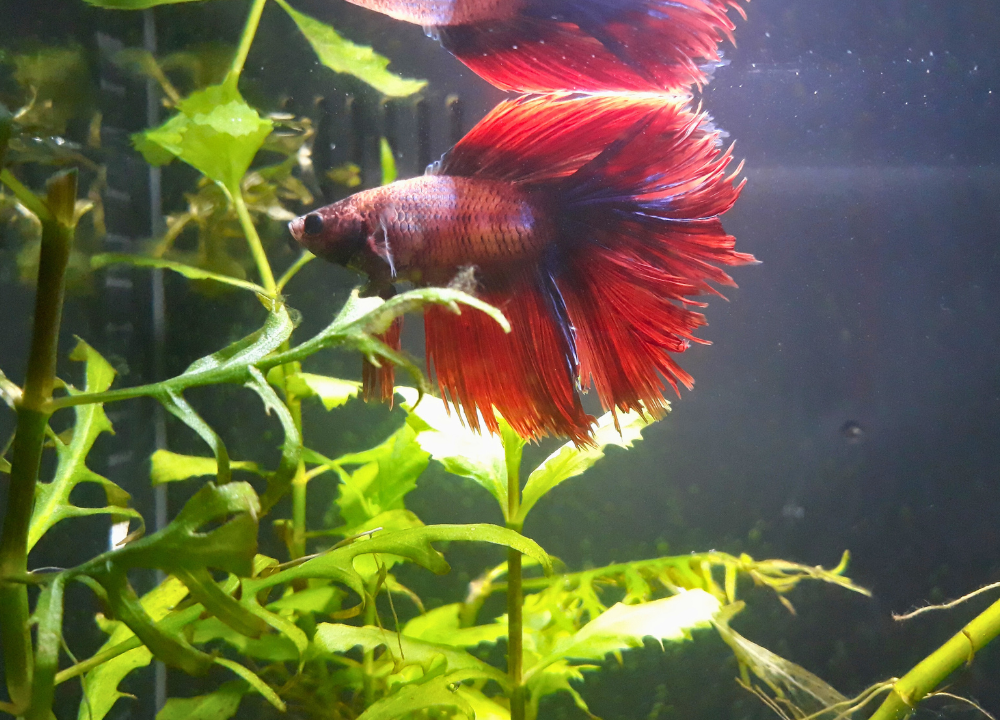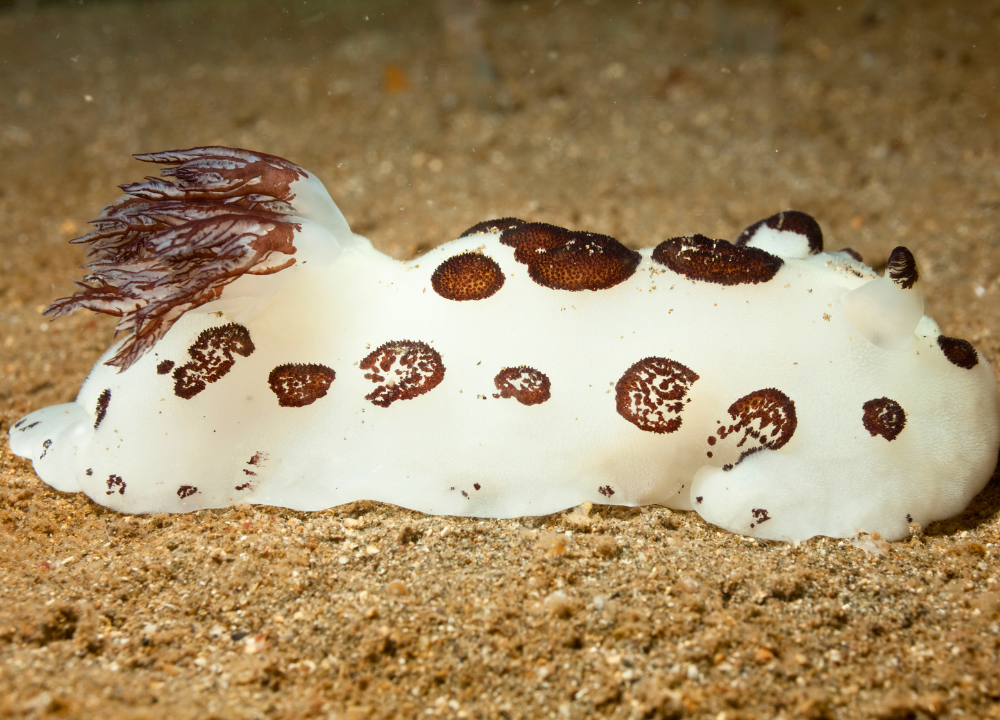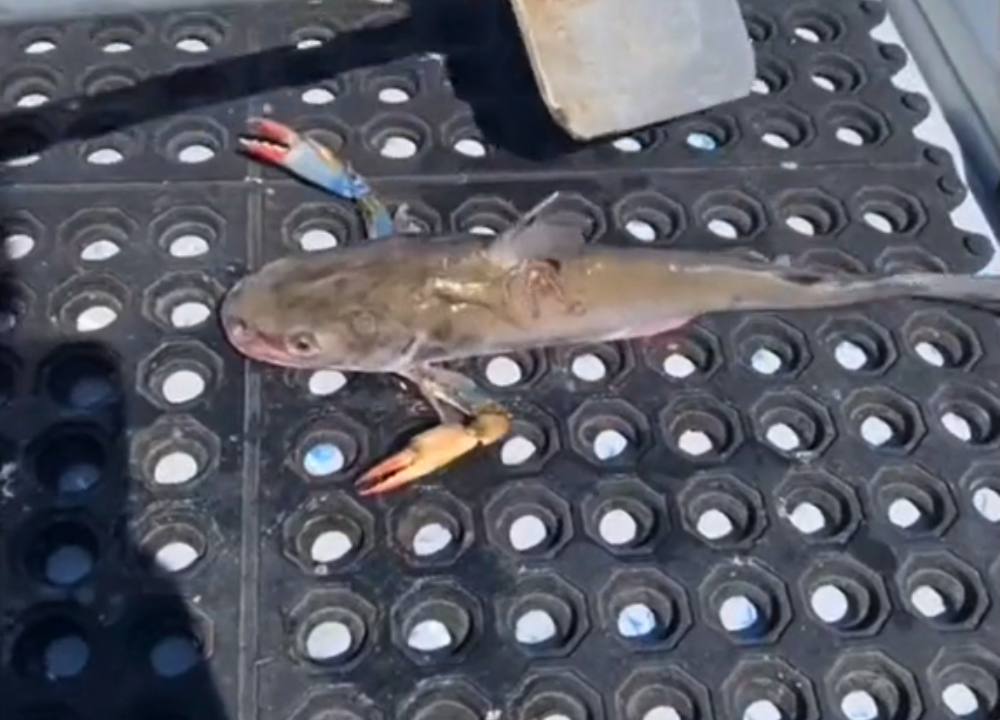Your Betta fish might have disappeared due to hiding spots or jumping out of the tank. Check for hiding places and tank surroundings.
Betta fish are known for their vibrant colors and active behavior. Sometimes, they can disappear, causing concern for their owners. Common reasons include hiding in decorations, jumping out of the tank, or being trapped in filter systems. Ensure the tank has secure lids and accessible hiding spots to prevent accidents.
Regularly inspect the tank setup and surroundings to keep your Betta safe. Proper tank maintenance and observation can help solve the mystery of your missing Betta fish. Keeping a close eye on their behavior and environment ensures their safety and well-being.
Table of Contents
Betta Fish Behavior
Betta fish, known for their vibrant colors and flowing fins, can sometimes seem to disappear mysteriously. Understanding their behavior helps in solving this mystery. Betta fish are unique creatures with specific habits and needs.
Understanding Betta Fish
Betta fish, also known as Siamese fighting fish, are popular pets. They are known for their striking appearance and lively personalities. To understand why your betta fish might disappear, it’s crucial to know their basic needs and behavior patterns.
Betta fish have several unique characteristics:
- Solitary Nature: Bettas prefer to live alone. They can become aggressive if housed with other fish.
- Labyrinth Organ: Bettas can breathe air from the water surface, thanks to a special organ called the labyrinth.
- Hiding Spots: Bettas love to hide. They seek out caves, plants, and decorations to feel secure.
Here’s a table summarizing key aspects of betta fish care:
| Aspect | Details |
|---|---|
| Tank Size | Minimum 5 gallons |
| Water Temperature | 76-82°F (24-28°C) |
| Diet | High-protein pellets, frozen or live food |
| Habitat | Decorations, plants, hiding spots |
Common Betta Fish Behaviors
Understanding common betta fish behaviors can help solve the mystery of their disappearance. Here are some behaviors to watch for:
- Hiding: Bettas often hide in plants or decorations. This is a natural behavior to feel safe.
- Flaring: When bettas see their reflection or another fish, they flare their gills to appear larger.
- Resting: Bettas may rest at the bottom of the tank or on leaves. This is normal and not a cause for concern.
- Bubble Nests: Male bettas build bubble nests on the water’s surface. This is part of their breeding behavior.
Here’s an ordered list of signs that your betta might be stressed or hiding:
- Loss of color
- Clamped fins
- Refusal to eat
By observing these behaviors, you can better understand your betta’s needs and ensure a healthy environment. Ensuring your tank has plenty of hiding spots and is free from stress factors can help your betta thrive.
Possible Reasons For Disappearance
Betta fish are known for their vibrant colors and lively personalities. But sometimes, they seem to vanish from their tanks. Understanding why your betta fish disappeared can help you prevent it from happening again. Here are some possible reasons for their disappearance:
Water Quality Issues
Water quality plays a crucial role in the health and safety of your betta fish. Poor water conditions can lead to stress, making your fish hide or even die. Here are some common water quality issues:
- Ammonia and Nitrite Levels: High levels of ammonia and nitrite are toxic to fish. Use a water testing kit to monitor these levels regularly.
- pH Levels: Betta fish prefer a pH level between 6.5 and 7.5. Sudden changes in pH can stress your fish.
- Temperature: Betta fish thrive in water temperatures between 76°F and 82°F. Use a heater to maintain a stable temperature.
If you notice your betta fish disappearing, check the water quality first. A simple water test can reveal if there is an issue. Regular water changes and proper filtration can also help maintain a healthy environment.
Tank Mates Conflict
Betta fish are known for their aggressive nature. They can sometimes clash with their tank mates. Here are some common conflicts:
- Territorial Aggression: Betta fish are territorial. They may hide or become stressed if they feel threatened by other fish.
- Incompatible Species: Certain fish species do not get along with bettas. Avoid keeping fin-nippers or aggressive fish with your betta.
- Overcrowding: An overcrowded tank can lead to stress and hiding. Ensure your tank is spacious enough for all inhabitants.
If your betta fish is disappearing, observe the behavior of other tank mates. Look for signs of aggression or bullying. Consider separating your betta if conflicts arise.
Disease Or Illness
Diseases and illnesses can also cause your betta fish to disappear. Sick fish often hide or become less active. Here are some common diseases:
- Ich: White spots on the fish’s body. It causes itching and discomfort, leading to hiding.
- Fin Rot: Discolored or frayed fins. It is caused by poor water quality and stress.
- Swim Bladder Disease: Difficulty swimming or floating. It can make your betta hide or stay at the bottom of the tank.
Regularly check your betta for signs of illness. Early detection and treatment can prevent further health issues. Consult a vet or use medication to treat common diseases.

Investigating The Tank
Betta fish are fascinating pets, but sometimes they seem to disappear from their tanks. Understanding why your Betta fish has vanished can be challenging. Let’s dive into the process of investigating the tank to solve this mystery.
Checking For Signs Of Distress
When your Betta fish disappears, the first step is to check for signs of distress. Betta fish often hide when they are stressed or sick. Look for these indicators:
- Color Changes: A Betta fish under stress may lose its vibrant colors.
- Clamped Fins: If the fins are held close to the body, this can be a sign of distress.
- Erratic Swimming: Unusual swimming patterns may indicate that something is wrong.
- Loss of Appetite: A stressed Betta may refuse to eat.
Observe these signs closely. If you notice any, it’s essential to address the underlying issue. Here’s a quick checklist to help you identify stress factors:
| Possible Stress Factor | Solution |
|---|---|
| Water Temperature | Ensure the water is between 76-81°F (24-27°C). |
| Water Quality | Check ammonia, nitrate, and nitrite levels. |
| Tank Size | Make sure the tank is at least 5 gallons. |
| Tank Mates | Keep Betta fish alone or with peaceful companions. |
Examining Tank Equipment
Next, examine your tank equipment to ensure everything is functioning correctly. Faulty equipment can cause your Betta to hide or even escape. Follow these steps:
- Check the Filter: A malfunctioning filter can create strong currents or poor water quality. Ensure it’s working correctly.
- Inspect the Heater: A broken heater can lead to unsuitable water temperatures. Verify that the heater is maintaining a consistent temperature.
- Examine the Lid: Betta fish can jump. Ensure the lid is secure to prevent escape.
- Review the Lighting: Too much or too little light can stress your Betta. Make sure the lighting is appropriate.
Regular maintenance of these components is crucial. Here’s a brief maintenance schedule:
| Equipment | Frequency | Action |
|---|---|---|
| Filter | Weekly | Clean and check for blockages. |
| Heater | Monthly | Test functionality and temperature accuracy. |
| Lid | Daily | Ensure it is secure and in place. |
| Lighting | Weekly | Adjust timing and intensity as needed. |
Steps To Prevent Disappearance
Betta fish are known for their vibrant colors and unique personalities. But sometimes, they can mysteriously disappear from their tanks. Understanding the reasons behind this can help prevent such occurrences. Let’s explore some essential steps to ensure your betta fish stays safe and visible in its home.
Maintaining Ideal Water Conditions
Keeping the water in your betta fish tank clean and healthy is crucial. Poor water conditions can stress your fish, leading to hiding behaviors or even health issues.
Here are some essential tips:
- Regular Water Changes: Change 25% of the water weekly to remove toxins.
- Water Temperature: Betta fish thrive in water temperatures between 76-82°F (24-28°C). Use a reliable aquarium heater to maintain this range.
- pH Levels: Keep the pH level between 6.5 and 7.5. Test the water regularly using a pH testing kit.
- Filtration: Use a gentle filter to keep the water clean without stressing your betta fish.
Here’s a quick reference table for maintaining ideal water conditions:
| Parameter | Ideal Range |
|---|---|
| Temperature | 76-82°F (24-28°C) |
| pH Level | 6.5-7.5 |
| Water Change Frequency | Weekly, 25% |
Maintaining these conditions will ensure your betta fish remains healthy and less likely to hide or disappear.
Choosing Compatible Tank Mates
Betta fish can be territorial and aggressive towards certain tank mates. Choosing the right companions is essential to prevent stress or conflict.
Consider these factors when selecting tank mates:
- Size and Temperament: Avoid fish that are too large or aggressive. Small, peaceful fish like neon tetras or snails are good options.
- Number of Fish: Overcrowding can lead to stress and hiding. Keep the number of fish appropriate for the tank size.
- Behavior: Avoid fin-nipping species. Betta fish have delicate fins that can be easily damaged.
Here’s a list of compatible tank mates for betta fish:
| Compatible Tank Mate | Reason |
|---|---|
| Neon Tetras | Small, peaceful, and non-aggressive. |
| Corydoras Catfish | Bottom dwellers that don’t compete for territory. |
| Snails | Help keep the tank clean and are non-aggressive. |
Choosing compatible tank mates will help your betta fish live peacefully, reducing the chances of them disappearing due to stress or aggression.
Seeking Professional Help
Discovering your betta fish has disappeared can be alarming. Betta fish are known for their vibrant colors and active behavior. When they vanish, it may indicate a problem. Seeking professional help can provide solutions and peace of mind. This guide will help you understand the importance of consulting experts.
Consulting A Veterinarian
A veterinarian specializing in aquatic animals can offer valuable insights. Veterinarians have the training and experience to diagnose health issues that might cause your betta to hide or become inactive. They can perform physical exams and recommend treatments.
Here are some reasons to consult a veterinarian:
- Health problems: Disease or parasites can make your betta hide.
- Injury: Betta fish may retreat if injured.
- Stress: Poor water quality or tank mates can stress your fish.
Veterinarians can also provide advice on proper tank maintenance and diet. They can suggest remedies for improving water quality and reducing stress.
| Issue | Possible Solution |
|---|---|
| Disease | Medication |
| Injury | Isolation and treatment |
| Stress | Environmental changes |
Reaching Out To Experienced Betta Fish Keepers
Experienced betta fish keepers can be an invaluable resource. They often have years of experience and practical knowledge. These enthusiasts can share tips and tricks that have worked for them.
Consider these benefits of connecting with experienced keepers:
- Troubleshooting advice: They can help identify common problems.
- Preventative tips: Learn how to avoid future issues.
- Community support: Join forums and groups for ongoing assistance.
Reaching out to these keepers can be done through online forums, social media groups, or local aquarium clubs. Engaging with a community of betta enthusiasts can lead to quick solutions and shared experiences.
Here are some places to find experienced keepers:
- Online forums
- Social media groups
- Local fish clubs
Connecting with experienced betta fish keepers can help you solve the mystery of your disappearing betta fish. Their insights and shared knowledge can be a lifesaver for your finned friend.
Frequently Asked Questions
Why Did My Fish Randomly Disappear?
Your fish might have been eaten by other fish, jumped out, or is hiding. Check tank decorations and filters.
What Happened To My Betta Fish?
Your betta fish might be sick, stressed, or experiencing poor water conditions. Check for signs of illness, clean the tank, and ensure proper water parameters. Consult a vet if necessary.
Why Is My Betta Searching The Bottom Of The Tank?
Your betta may be searching the bottom due to hunger, boredom, exploring, or looking for a comfortable resting spot.
Why Is My Betta Fish Not Swimming Around Anymore?
Your betta fish may not be swimming due to poor water quality, illness, or stress. Check water parameters, temperature, and signs of disease.
Conclusion
Solving the mystery of your missing Betta fish can be challenging. By understanding their habits, you can prevent future disappearances. Ensure your tank is secure and clean. Regularly check for any hiding spots or potential escapes. With these tips, your Betta fish will stay safe and visible, giving you peace of mind.



